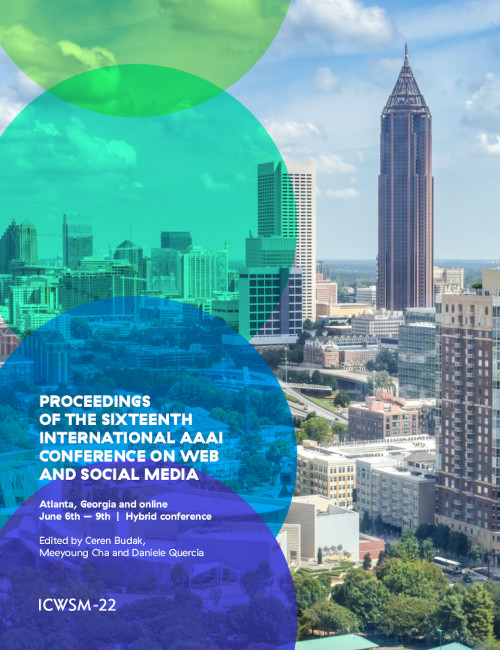Conversational Resilience: Quantifying and Predicting Conversational Outcomes Following Adverse Events
DOI:
https://doi.org/10.1609/icwsm.v16i1.19314Keywords:
Qualitative and quantitative studies of social media, Human computer interaction; social media tools; navigation and visualization, Subjectivity in textual data; sentiment analysis; polarity/opinion identification and extraction, linguistic analyses of social media behavior, Ranking/relevance of social media content and usersAbstract
Online conversations, just like offline ones, are susceptible to influence by bad actors. These users have the capacity to derail neutral or even prosocial discussions through adverse behavior. Moderators and users alike would benefit from more resilient online conversations, i.e., those that can survive the influx of adverse behavior to which many conversations fall victim. In this paper, we examine the notion of conversational resilience: what makes a conversation more or less capable of withstanding an adverse interruption? Working with 11.5M comments from eight mainstream subreddits, we compiled more than 5.8M comment threads (i.e., conversations). Using 239K relevant conversations, we examine how well comment, user, and subreddit characteristics can predict conversational outcomes. More than half of all conversations proceed after the first adverse event. Six out of ten conversations that proceed result in future removals. Comments violating platform-wide norms and those written by authors with a history of norm violations lead to not only more norm violations, but also fewer prosocial outcomes. However, conversations in more populated subreddits and conversations where the first adverse event's author was initially a strong contributor are capable of minimizing future removals and promoting prosocial outcomes after an adverse event. By understanding factors that contribute to conversational resilience we shed light onto what types of behavior can be encouraged to promote prosocial outcomes even in the face of adversity.Downloads
Published
2022-05-31
How to Cite
Lambert, C., Rajagopal, A., & Chandrasekharan, E. (2022). Conversational Resilience: Quantifying and Predicting Conversational Outcomes Following Adverse Events. Proceedings of the International AAAI Conference on Web and Social Media, 16(1), 548-559. https://doi.org/10.1609/icwsm.v16i1.19314
Issue
Section
Full Papers

